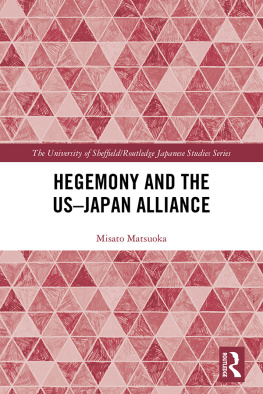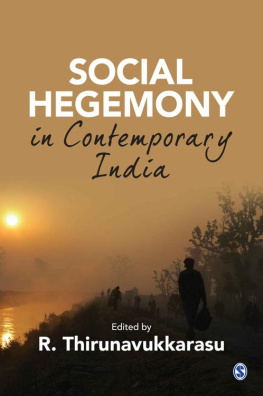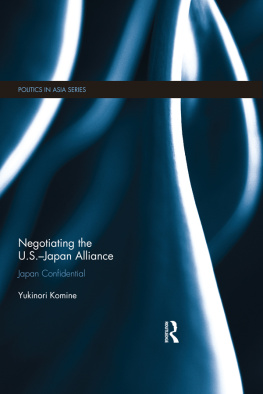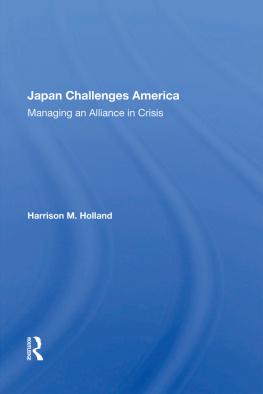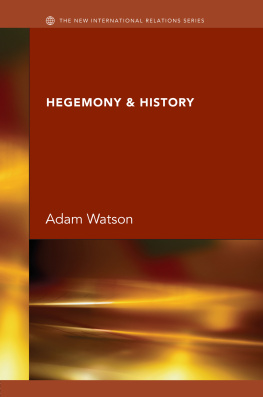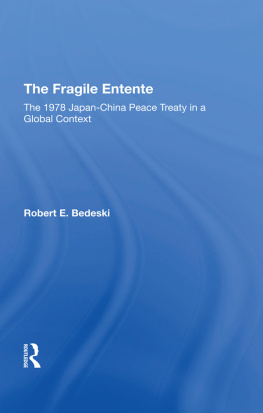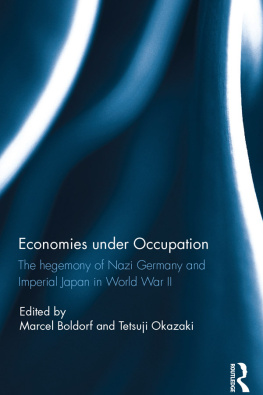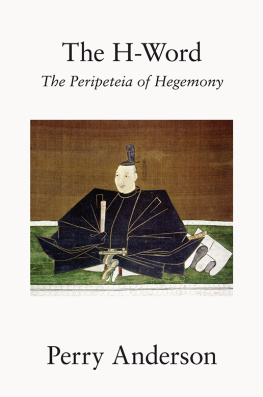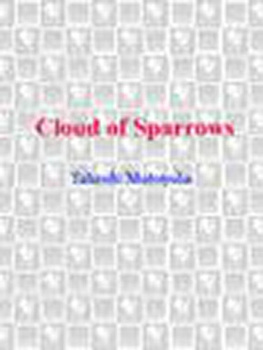Hegemony and the USJapan Alliance
It is widely recognised that the increasing importance of the USJapan alliance is strongly linked to emerging threats in the Asia Pacific, with Chinas rise and the ambitions of North Korea having brought the two allies closer together. This book, however, seeks to question whether these factors are indeed the sole determinants of this enduring alliance.
A pioneering study conducted through the lens of neo-Gramscianism, this book unravels the intricate political dynamism involved in the USJapan alliance. It provides an innovative attempt to link the concept of alliances to hegemony and thus examines Japans relationship to US dominance in the region. Building on existing scholarship, it also seeks to examine how Japans continuing dependence on the US, and the burden it places of citizens living near US military bases, may affect the durability of the alliance in the post-Cold War era. As such, this book presents an alternative theoretical tool in the field of international relations to analyse the political nature of the alliance, as well as US hegemony in the region.
This book will be useful to students and scholars of Japanese Politics and foreign policymaking, as well as International Relations and Security Studies more generally.
Misato Matsuoka is Assistant Professor at Teikyo University, Japan. Her research interests include International Relations theories, security studies, Japanese foreign policymaking and regionalism in the Asia-Pacific.
The University of Sheffield/Routledge Japanese Studies Series
Celebrating 55 Years of Japanese Studies at The University of Sheffield, 19632018
Series Editor: Hugo Dobson
Professor of Japans International Relations and Head of Department, University of Sheffield
This series, published by Routledge in association with the Centre for Japanese Studies at the University of Sheffield, both makes available original research on a wide range of subjects dealing with Japan and provides introductory overviews of key topics in Japanese Studies.
Risk and Securitization in Japan
194560
Piers Williamson
Japans Relations with North Korea and the Recalibration of Risk
Ra Mason
The Politics of War Memory in Japan
Progressive civil society groups and contestation of memory of the Asia-Pacific War
Kamila Szczepanska
Governing Insecurity in Japan
The domestic discourse and policy response
Edited by Wilhelm Vosse, Reinhard Drifte and Verena Blechinger-Talcott
Regional Risk and Security in Japan
Whither the everyday
Glenn D. Hook, Ra Mason and Paul OShea
Narrative Management in Corporate Japan
Investor Relations as Pseudo-Reform
Chie Yorozu
Hegemony and the USJapan Alliance
Misato Matsuoka
For more information about this series, please visit: www.routledge.com/asianstudies/series/SE0017
Hegemony and the USJapan Alliance
Misato Matsuoka
First published 2018
by Routledge
2 Park Square, Milton Park, Abingdon, Oxon OX14 4RN
and by Routledge
711 Third Avenue, New York, NY 10017
Routledge is an imprint of the Taylor & Francis Group, an informa business
2018 Misato Matsuoka
The right of Misato Matsuoka to be identified as author of this work has been asserted by her in accordance with sections 77 and 78 of the Copyright, Designs and Patents Act 1988.
All rights reserved. No part of this book may be reprinted or reproduced or utilised in any form or by any electronic, mechanical, or other means, now known or hereafter invented, including photocopying and recording, or in any information storage or retrieval system, without permission in writing from the publishers.
Trademark notice: Product or corporate names may be trademarks or registered trademarks, and are used only for identification and explanation without intent to infringe.
British Library Cataloguing-in-Publication Data
A catalogue record for this book is available from the British Library
Library of Congress Cataloging-Publication Data
A catalog record has been requested for this book
ISBN: 978-1-138-30347-8 (hbk)
ISBN: 978-0-203-73106-2 (ebk)
Typeset in Times New Roman
by Wearset Ltd, Boldon, Tyne and Wear
Contents
Illustrations
Figures
Table
Acknowledgements
This book could not have been completed without numerous supports from many people surrounding me throughout my PhD research since 2011. First and foremost, I am deeply indebted to my primary supervisor, Professor Christopher W. Hughes, who provided insightful advice with timely guidance at all stages of my research. Without his constant support, I would not have been able to develop my thesis with the persistent theme from beginning to end. I would like to thank my secondary supervisor, Dr Dominic Kelly, who supported me with regard to the theoretical framework that is a crucial element of my thesis. I am truly grateful for their supportive and accommodative supervision, which has enabled the completion of the thesis. I am also thankful for Professor Hugo Dobson and Professor Shaun Breslin, who gave helpful comments and suggestions as viva examiners for the completion of my PhD thesis.
I owe thanks to the British Association for Japanese Studies (BAJS) for providing me with a John Crump Studentship award, which is given to a PhD student in their final stages. Not only did this scholarship allow me to complete my PhD thesis with financial support, but also provided an opportunity to submit a journal article to Japan Forum, a major publisher in the field of Japanese Studies, which is a crucial step in my academic career. I am also obliged to many interviewees and other people who supported my fieldwork in Japan.
My acknowledgements also go to my friends and colleagues at the University of Warwick and other institutions. My academic life has not only been enriched by the East Asia Study Group (EASG) at the University of Warwick, particularly Catherine Jones, Michiel Foulon, Atsuko Watanabe, Miriam Grinberg and Katie Dingley, but also the colleagues and alumni whom I met in the department, at conferences or during my fieldwork in Japan, notably Vicky Tuke, Giulio Pugliese, Bjrn Jerden, Felix Rsch and Sheri Huang. Last, but not least, I must express my deepest gratitude to my family, especially my mother, Rieko Matsuoka. As a scholar, she has always been academically inspiring, which triggered me entering the academic world. As my mother, she has constantly respected my own way of thinking and supported the long journey of my research in various ways.
Abbreviations and acronyms
| A2AD | Anti-access/area denial |
| ACCJ | American Chamber of Commerce in Japan |
| ACSA | Acquisition and Cross-Servicing Agreement |
| ADIZ | Air Defence Identification Zone |
| AEI | American Enterprise Institute |
| AMD | Anti-Ballistic Missile Treaty |
| AMF | Asian Monetary Funds |
| APEC | Asia-Pacific Economic Cooperation |
| ARF | ASEAN Regional Forum |
| ASEAN | Association of Southeast Asian Nations |
| ASW | |


